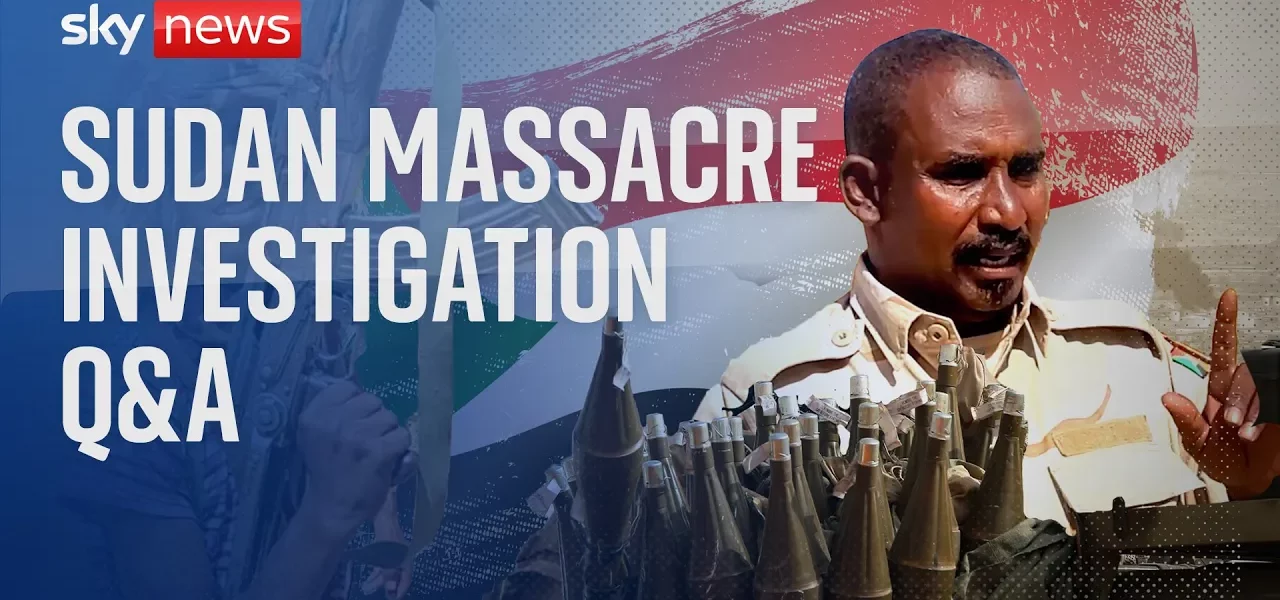Gruesome Details of the Kutum Massacre: An Investigation into Sudan’s Ethnic Violence

In this detailed article, we explore the horrific events surrounding the Kutum massacre in North Darfur on June 3, 2023, as uncovered by a joint investigation by Sky News and Lighthouse Reports. We delve into the historical context, the ongoing humanitarian crisis, and the urgent need for international attention and action.
Introduction
The massacre in Kutum, a town in North Darfur, marks a tragic episode in the ongoing conflict in Sudan, which has seen a resurgence of ethnic violence since the revolution of 2019. This report serves not only to recount the events of June 3, 2023, but also to highlight the intricate web of political power struggles, historical grievances, and the dire humanitarian situation that continues to unfold in the country.
Understanding the Historical Context
To fully grasp the significance of the Kutum massacre, it is essential to understand the historical backdrop of Sudan. In 2019, a popular uprising ousted long-time dictator Omar al-Bashir, igniting hopes for a new era of democracy. However, the subsequent power vacuum led to a fierce struggle between military leaders, particularly between army chief Abdel Fattah al-Burhan and Rapid Support Forces (RSF) leader Mohamed Hamdan Dagalo (Himti).
The Aftermath of the 2019 Revolution
Despite the initial optimism following the revolution, the country quickly descended into chaos. The military coup on October 25, 2021, marked a pivotal point where the aspirations for civilian governance were dashed. The power struggle between al-Burhan and Himti escalated into open conflict, resulting in widespread violence, including targeted ethnic attacks.
The Kutum Massacre: A Disturbing Reality
The massacre in Kutum is not an isolated incident but a part of a broader pattern of ethnic violence that has plagued Sudan. This section will explore the details of the incident and its implications.
Details of the Massacre
- Date: June 3, 2023
- Location: Kutum, North Darfur
- Nature of Violence: Systematic targeting of individuals based on ethnicity
- Number of Casualties: Yet to be determined, but reports indicate significant loss of life
The Role of Ethnic Targeting
The investigation revealed that the violence was not merely a byproduct of the ongoing conflict but a calculated assault on specific ethnic groups. Survivors recounted harrowing tales of being hunted down based on their ethnicity, highlighting the chilling nature of the attacks. Such systematic targeting raises serious questions about the potential classification of these acts as genocide.
International Response and Responsibility
The international community’s response to the situation in Sudan has been notably tepid, raising concerns about accountability and intervention.
Calls for Accountability
Questions have been raised regarding the lack of international arrest warrants for those implicated in the atrocities. Experts suggest that the International Criminal Court (ICC) must be more proactive in addressing these issues.
The Role of Western Governments
- Pressure on countries supplying arms to the RSF.
- Increased humanitarian aid to support displaced populations.
- Engagement in diplomatic efforts to foster peace talks.
The UK, in particular, has been criticized for its inaction, despite being a permanent member of the UN Security Council. The implications of inaction extend beyond humanitarian concerns, affecting regional stability and counterterrorism efforts.
Conclusion
The Kutum massacre underscores the urgent need for renewed international attention to the crisis in Sudan. The world’s inaction not only exacerbates the suffering of countless civilians but also sets a dangerous precedent for future atrocities. As citizens and global leaders alike, it is imperative that we advocate for justice, accountability, and humanitarian intervention. The time to act is now; the future of Sudan depends on it.
For further reading on the situation in Sudan, check out our articles on the Sudanese Revolution and ethnic violence in Africa.
“`




